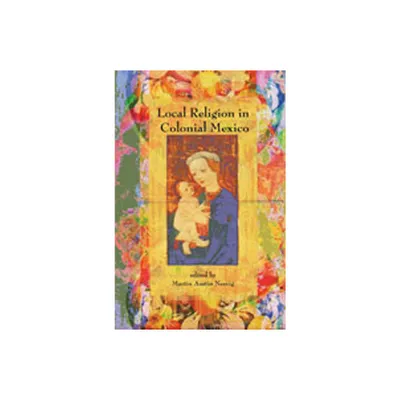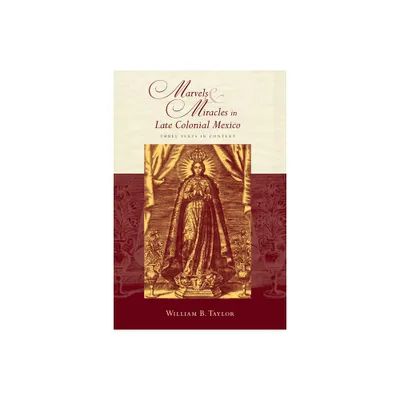Home
Nahua and Maya Catholicisms: Texts and Religion in Colonial Central Mexico and Yucatan
Loading Inventory...
Barnes and Noble
Nahua and Maya Catholicisms: Texts and Religion in Colonial Central Mexico and Yucatan
Current price: $75.00


Barnes and Noble
Nahua and Maya Catholicisms: Texts and Religion in Colonial Central Mexico and Yucatan
Current price: $75.00
Loading Inventory...
Size: OS
*Product Information may vary - to confirm product availability, pricing, and additional information please contact Barnes and Noble
Nahua and Maya Catholicisms
examines ecclesiastical texts written in Nahuatl and Yucatec Maya to illustrate the role of these texts in conveying and reflecting various Catholic messages—and thus Catholicisms—throughout colonial Central Mexico and Yucatan. It demonstrates how published and unpublished sermons, confessional manuals, catechisms, and other religious texts betray "official" and "unofficial" versions of Catholicism, and how these versions changed throughout the colonial period according to indigenous culture, local situations, and broader early modern events. The book's study of these texts also allows for a better appreciation of the negotiations that occurred during the evangelization process between native and Spanish cultures, the center and periphery, and between official expectations and everyday realities. And by employing both Nahuatl and Maya religious texts,
Nahua and Maya Catholicism
allows for a uniquely comparative study that expands beyond Central Mexico to include Yucatan.
examines ecclesiastical texts written in Nahuatl and Yucatec Maya to illustrate the role of these texts in conveying and reflecting various Catholic messages—and thus Catholicisms—throughout colonial Central Mexico and Yucatan. It demonstrates how published and unpublished sermons, confessional manuals, catechisms, and other religious texts betray "official" and "unofficial" versions of Catholicism, and how these versions changed throughout the colonial period according to indigenous culture, local situations, and broader early modern events. The book's study of these texts also allows for a better appreciation of the negotiations that occurred during the evangelization process between native and Spanish cultures, the center and periphery, and between official expectations and everyday realities. And by employing both Nahuatl and Maya religious texts,
Nahua and Maya Catholicism
allows for a uniquely comparative study that expands beyond Central Mexico to include Yucatan.
















